CIA Sponsored Terror, Civil Liberties, Criminalizing Dissent, Crony Capitalism, Human Rights, Surveillance, Truth to Power
Podcast: Play in new window | Download
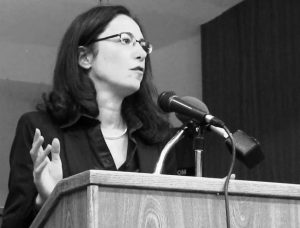
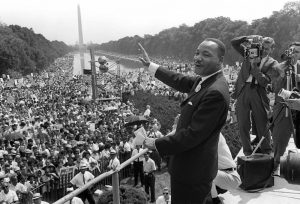
Regulation Designed to Tax Protesters For First Amendment Activity
The Trump administration has another first for America. It wants demonstrators to pay to use public parks, sidewalks and streets to engage in free speech. The effect of taxing protesters in the nation’s capital will be to restrict access for First Amendment activities to the very few who can afford it. Participatory democracy will be no more.
Interior Secretary Ryan Zinke in August announced the White House’s rewriting of regulations governing free speech and assembly on public lands under federal jurisdiction.
The National Park Service will charge protesters for so-called event management expenses. Barricades and fencing that police may erect, trash removal, sanitation charges, permit application charges, salaries of personnel deployed to monitor protests, as well as cost deemed harmful to turf. The Park Service claims protest-related costs are burdensome, and said that last year’s Women’s March imposed “a pretty heavy cost” on the government.
Guest – Mara Verheyden-Hilliard, co-chair of the Guild’s National Mass Defense Committee. co-founder of the Partnership for Civil Justice Fund in Washington, DC, she secured $13.7 million for about 700 of the 2000 IMF/World Bank protesters in Becker, et al. v. District of Columbia, et al., while also winning pledges from the District to improve police training about First Amendment issues. She won $8.25 million for approximately 400 class members in Barham, et al. v. Ramsey, et al. (alleging false arrest at the 2002 IMF/World Bank protests). She served as lead counsel in Mills, et al v. District of Columbia (obtaining a ruling that D.C.’s seizure and interrogation police checkpoint program was unconstitutional); in Bolger, et al. v. District of Columbia (involving targeting of political activists and false arrest by law enforcement based on political affiliation); and in National Council of Arab Americans, et al. v. City of New York, et al. (successfully challenging the city’s efforts to discriminatorily restrict mass assembly in Central Park’s Great Lawn stemming from the 2004 RNC protests.)
—-

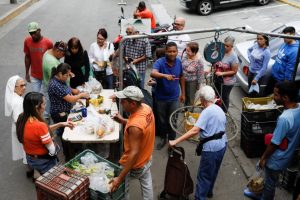
U.S. Plans To Overthrow Venezuelan President?
Recently people in the Trump administration held secret meetings with certain military leaders of Venezuela to discuss plans to overthrow Venezuelan elected President Nicolas Maduro.
The White House said in a statement that it was important to engage in “dialogue with all Venezuelans who demonstrate a desire for democracy“ in order to “bring positive change to a country that has suffered so much under Maduro.” The economic situation in Venezuela has been dire. This has been exacerbated by a US financial embargo. It is estimated that 1,600,000 people have left Venezuela since 2015.
Guest – William Camacaro is a Venezuelan living in New York City and a senior research fellow at the Consul of Hemispheric Affairs, Washington DC best non-governmental organization founded in 1975. Camacaro is a cofounder of the Alberto Lovers Bolivarian Circle of New York, an organization founded in solidarity with Venezuela.
——————-

——————-
CIA Sponsored Terror, Civil Liberties, Criminalizing Dissent, Crony Capitalism, Human Rights, Political Prisoner, Prison Industry, Supreme Court, Surveillance, Targeting Muslims, Truth to Power, War Resister
Podcast: Play in new window | Download
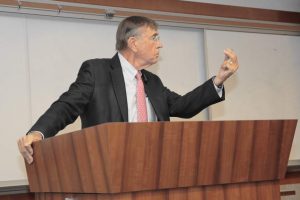
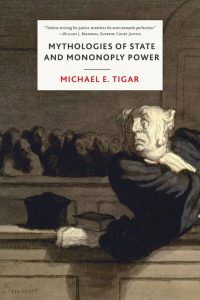
Attorney Michael Tigar: The Mythologies of State and Monopoly Power
The American criminal justice system is buttressed, sustained and perpetuated by various myths. These myths dominate legal ideology. The most important of these myths concern racism, criminal justice, free expression, workers’ rights, and international human rights. “Ordinary private law categories of property, contract, and tort perform the same social function,” Michael Tigar writes in his important new book “Mythologies of State and Monopoly Power.“
Michael Tigar has worked for more than 50 years with movements for social change as a human rights lawyer, law professor, and writer. He believes that busting these myths is the work of movement lawyers.
Noam Chomsky has written that “for anyone concerned with the rule of law, or more generally with the real significance of freedom and justice, Michael Tigar’s book is “a highly informed and carefully argued study that should be essential reading.”
The book is beautifully written, learned, and profoundly insightful. In a better world Michael Tigar would be a justice of the United States Supreme Court.
The Michael Tigar Papers Launch University of Texas
Tigarbytes.blogspot.com
Guest – Michael Tigar, emeritus professor of law at Duke University and at Washington College of Law. He has been a lawyer working on social change issues since the 1960s. He has argued numerous cases in United States Supreme Court and many Circuit Courts of Appeal. His books include “Law and the Rise of Capitalism”, “ Fighting Injustice ”, and the forthcoming Mythologist of State and Monopoly Power.“
——————–

——————–
CIA Sponsored Terror, Civil Liberties, Climate Change, Human Rights, Prison Industry, Surveillance, Torture, Truth to Power
Podcast: Play in new window | Download
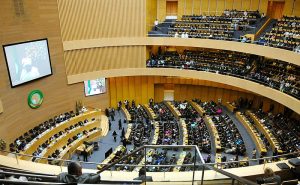
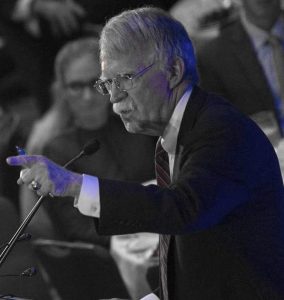
Bolton Threatens ICC Over Probes Into US War Crimes
On September 10, 2018 in Washington DC, President Donald Trump‘s national security adviser John Bolton gave an important and widely publicized speech to the rightist Federalist Society threatening International Criminal Court judges and court personnel if they dared to probe into U.S. torture practices in Afghanistan and three European black sites. The United States is being investigated for torturing captives in Afghanistan, Poland, Estonia, and Lithuania. The charges have been documented by the U.S. Senate in its report of December 14, 2017.
The International Criminal Court is also investigating Israeli war crimes in Gaza where in 2014, 3000 people including more than 500 children were killed by Israeli invaders. This has been documented by the United Nations’ Goldstone Report.
Bolton said that “the United States will use any means necessary to protect our citizens and those of our allies from unjust prosecution by this illegitimate court including tariffs and prosecution.“
He added that “if the court comes after us, Israel, or other allies we will not sit quietly.“
Bolton also announced that the US is shutting down a Palestinian diplomatic office in Washington because Palestinians have indicated that they will request that the ICC prosecute American ally Israel for war crimes and crimes against humanity.
In addition, the United States has cut off payments to the United Nations organization that has provided funds for refugees displaced by Israel when it conquered Palestine in the 1948 war. The funds were used for schools and hospitals in the West Bank and Gaza.
Guest – Attorney Reed Brody, with Human Rights Watch, is a former colleague Michael Ratner, Brody has spent much of his career prosecuting international war criminals for crimes that the International Criminal Court investigators are contemplating with respect to the United States and Israel.
—-
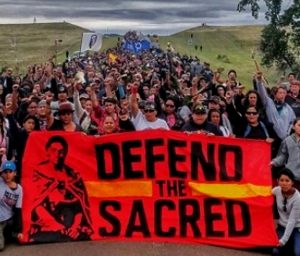
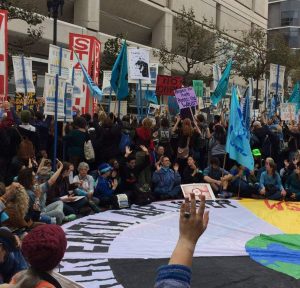
Protect The Protest Coalition Launches To Fight Against SLAPPs
Anti-corporate sentiment in the United States of America is getting increasingly wide and deep. This is especially true when it comes to corporate responsibility for environmental degradation.
The most spectacular example of this is the nationwide mobilization in support of the water protectors at Standing Rock a year ago. The Energy Partners Transfer Corporation was attempting to build a pipeline through land sacred to native peoples in North Dakota. The pipeline went under the Missouri River threatening the water supply.
One of the many organizations supporting the Water Protectors was Greenpeace . As a consequence, they were sued by Energy Transfer Partners and accused of racketeering under the RICO act, a law originally passed to be used against organized crime.
The suit was designed to tie up the resources of Greenpeace , harass them, and cost them money. The lawyers for the corporation are the same firm used by Donald Trump. These legal actions by big corporations are called SLAPP suits. This stands for Strategic Litigation Against Public Participation.
In recent times these lawsuits have been proliferating. Two weeks ago 18 organizations including the Center for Constitutional Rights banded together to fight back.
Guest – Attorney Deepa Panmanabha, the assistant general counsel with Greenpeace since 2011 and is based in Washington DC. Deepa is involved in defending Greenpeace against two lawsuits attempted to silence the organizations advocacy work brought by Resolute Forest Products and Energy Transfer Partners. She also advises on a variety of legal matters and managers criminal law cases where green peas after this engage in civil disobedience. Deepa represents Greenpeace USA in the Protect the Protest Task Force, a recently formed coalition created to confront corporations that file lawsuits design to silence dissent and provide resources to individuals and groups facing these suits.
————————

————————
CIA Sponsored Terror, Civil Liberties, Criminalizing Dissent, Human Rights, Truth to Power
Podcast: Play in new window | Download
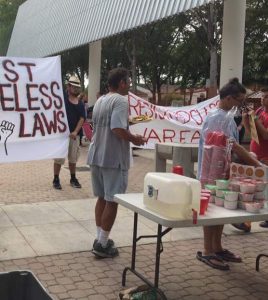
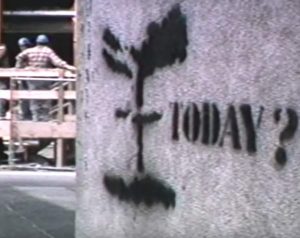
First Amendment Case: Food Not Bombs
In a remarkable victory for free speech, in late August three 11th Circuit judges held that the Ft. Lauderdale Food Not Bombs’ weekly outdoor food sharing is expressive conduct protected by the First Amendment. The Florida group is affiliated with the international organization Food Not Bombs, and engages in peaceful political direct action. It conducts weekly food sharing events at Stranaham Park in downtown Ft. Lauderdale, distributing vegetarian or vegan food free of charge. Their message is clear: society can end hunger and poverty if we redirect our collective resources from the military and war and that food is a human right, not a privilege, which society has a responsibility to provide for all. Providing food in a visible public space and sharing meals with others is an act of political solidarity meant to convey the organization’s message.
Guest – Keith McHenry, and seven friends founded Food Not Bombs in Cambridge, Massachusetts. Keith has been arrested more than 100 times for making a political statement of sharing free food in San Francisco and he has spent more than 500 nights in jail for peaceful protest.
—-
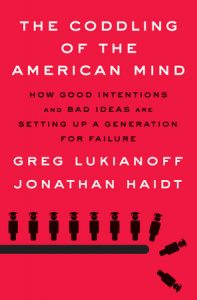
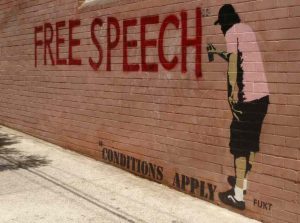
The Coddling of the American Mind: How Good Intentions and Bad Ideas Are Setting up a Generation for Failure.
Over the past five years or so, American colleges and universities have been dealing—quite publicly–with issues related to free speech on campus.
In a widely read opinion piece in the Atlantic in 2016, Greg Lukianoff and Jonathan Haidt argued that American students are being coddled as administrators cede to their demands for protection from offensive ideas and words. The authors wrote that requests to be shielded from offensive words and behaviors come at the expense of both intellectual rigor, and the First Amendment.
Two years later, professors are still eliminating controversial material from their classes to avoid facing Bias Incident Reports. College administrators are dis-inviting speakers whose viewpoints may make students feel “unsafe,” and many students are afraid to talk or write openly out of fear they will face public shaming.
Guest – Greg Lukianoff, teamed up with Jonathan Haidt once again in writing the newly-published book The Coddling of the American Mind: How Good Intentions and Bad Ideas Are Setting up a Generation for Failure. The book lays out the continued assault on free speech on U.S. campuses and the disservice it does by treating students as fragile. It also examines how conditions have worsened with polarizing politics. And the authors offer suggestions for change. Greg is also author of the 2014 book, Unlearning Liberty: Campus Censorship and the End of American Debate.
CIA Sponsored Terror, Civil Liberties, Criminalizing Dissent, Human Rights, Political Prisoner, Prison Industry, Supreme Court, Truth to Power
Podcast: Play in new window | Download
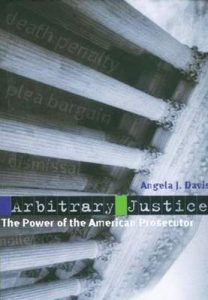
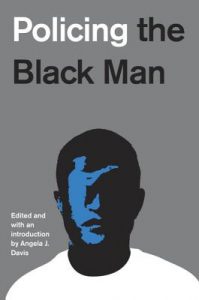
Attorney Angela Davis: Arbitrary Justice
“In the halls of justice”, it has been quipped, “the only justice you find is in the halls.” H. Rap Brown, a leader of SNCC, the Student Non-violent Coordinating Committee, said that justice in America means “just us”. There are 2.3 million people in American prisons today. A great proportion of them are African-Americans. If you assume Europe has the same social situation that we do in America, it is a telling fact that we have seven times as many prisoners. Part of the explanation for this phenomenon, In addition to the racist nature of the United States of America, is the power that the American prosecutor has. It is the power to choose whom to prosecute and for what crime. It is the power to obtain convictions, not to seek justice. It is a power that is discretionary and open to abuse. This abuse is rarely reviewable or punished.
Guest – Attorney and Professor Angela J. Davis, author of Arbitrary Justice: The Power of the American Prosecutor. Her most recent book “Policing the Black Man” covers the key issues of the Black Lives Matter movement. Angela J. Davis, professor of law at American University Washington College of Law, is an expert in criminal law and procedure with a specific focus on prosecutorial power and racism in the criminal justice system. Davis previously served as director of the D.C. Public Defender Service, where she began as a staff attorney representing indigent juveniles and adults. She also served as executive director of the National Rainbow Coalition and is a former law clerk of the Honorable Theodore R. Newman, the former Chief Judge of the D.C. Court of Appeals. Davis is the author of Arbitrary Justice: The Power of the American Prosecutor
———

———
CIA Sponsored Terror, Civil Liberties, Human Rights, NSA Spying, Surveillance, Truth to Power
Podcast: Play in new window | Download

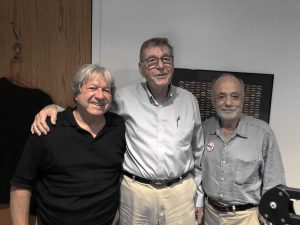
Michael E. Tigar On Challenges Lawyers Currently Face
Recently on Law And Disorder we interviewed Baher Azmy, Legal Director at the Center for Constitutional Rights, and National Lawyers Guild President Natasha Bannan. We were interested in their views of the challenges facing leftist lawyers and their movement clients face in these difficult times.
Attorney Jim Lafferty, the former head of the Los Angeles chapter of the National Lawyers Guild, who has a program on our sister station in Los Angeles, KPFK, joins me in the studio to cohost. We are going to speak for the entire hour with human rights attorney Michael Tigar.
Since the attacks on September 11, 2001, our democracy, however restricted at the time, has been even further shrunk by the growth of the national security state and the all knowing surveillance apparatus that has been set up. Moreover, the President, as the head of the executive branch of the government, has gathered unto to himself an unprecedented amount of power over the judicial and the legislative branches of the government. tigarbytes.blogspot.com/
Guest – Michael Tigar, emeritus professor of law at Duke University and at Washington College of Law. He has been a lawyer working on social change issues since the 1960s. He has argued numerous cases in United States Supreme Court and many Circuit Courts of Appeal. His books include “Law and the Rise of Capitalism”, “ Fighting Injustice ”, and the forthcoming Mythologist of State and Monopoly Power.“
———————

———————

















